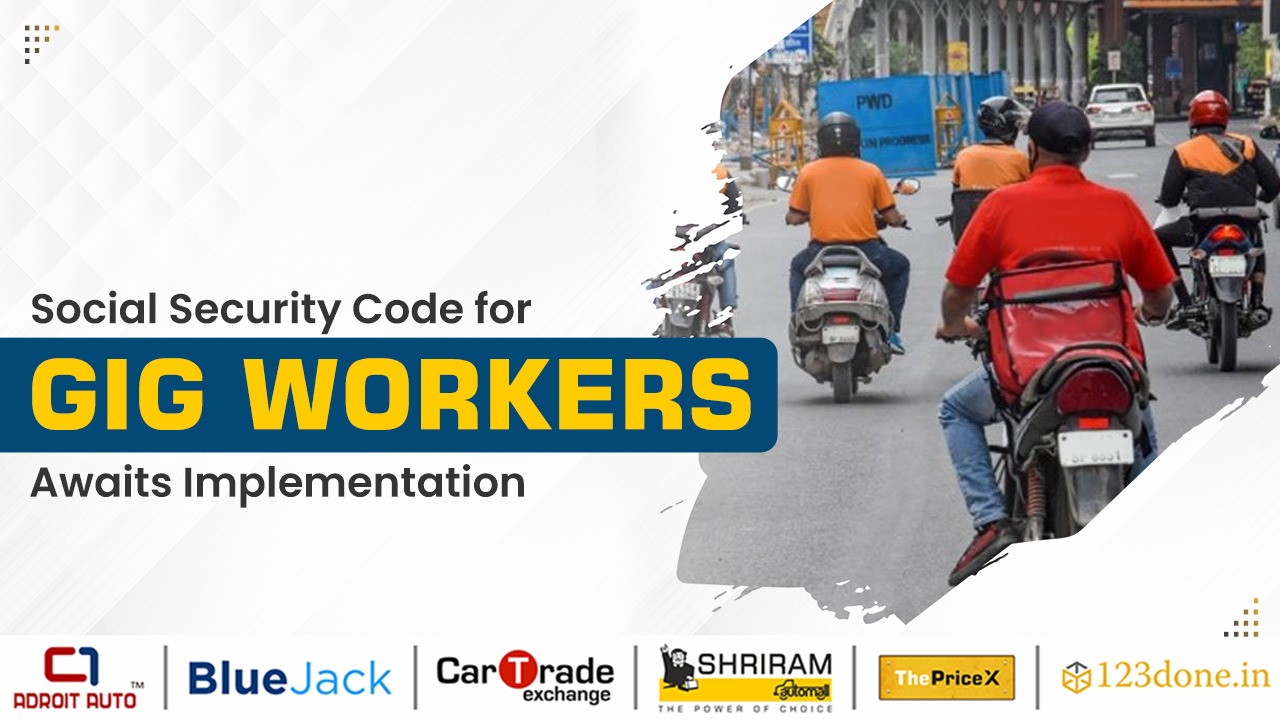Code on Social Security: Gig and Platform Workers Still Await Implementation

In a development spanning three years since its ratification in September 2020, the Code on Social Security, initiated by The Ministry of Labour & Employment, is still awaiting implementation. The government has solicited feedback and proposals from various stakeholders on the code. Centre for Labour Studies at the National Law School of India University (NLSUI), Bangalore, is aiding in formulating a new Scheme for Gig and Platform workers, along with workers in the unorganised sector.
Enacted in 2020, the Code on Social Security marked a significant milestone by defining 'gig worker' and 'platform worker.' It laid the groundwork for framing appropriate social security schemes encompassing life and disability cover, accident insurance, health and maternity benefits, and old age protection for gig workers and platform workers. Drawing provisions from nine worker welfare and rights legislations, including acts like 'The Employees Compensation Act,' 'The Employees State Insurance Act,' and 'The Maternity Benefit Act,' the Code aims to provide comprehensive coverage.
One notable provision within the Code is the establishment of a Social Security Fund. Funding sources include contributions from aggregators and platforms, ranging from 1 to 2% of the yearly turnover, with a cap of 5% of the amount paid or receivable by an aggregator to workers.
Despite the rapid growth of India's gig economy at a 17% CAGR, the Code's implementation faces delays. Approximately 60% of software organisations are investing in gig workers, and 97% of these companies express intentions to maintain or increase their freelance workforce, as reported by ASSOCHAM.
A recent analysis by the Boston Consulting Group outlines the vast potential of the gig economy in India, projecting up to 9 crore jobs, a transaction volume exceeding Rs 20.8 Trillion, and an additional 1.25% contribution to GDP over time in the non-farm economy.
An unnamed senior government official emphasised the absence of a dedicated welfare plan for gig workers, attributing the delay to the need for complete central or state support. While the private sector and the government could play a pivotal role, the official acknowledged that serious endeavours in this direction are yet to materialise, contributing to the prolonged timeline of the plan's realisation.
Follow SAMIL Blog to stay updated about the world of Automotive Industry.

 Download Our App
Download Our App



